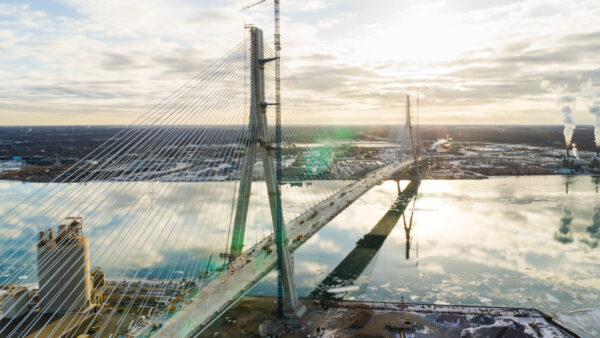Russia yesterday concluded a $20bn, five-year deal to help Iran to develop its oil and gas production capacity and build power plants and distribution grids.Â
The move could put Russia ahead in an international race to develop Iran’s electricity generating sector. Russia is already in talks to build a second reactor at Iran’s Bushehr nuclear power station.
At present, Iran generates 70GW of power but demand is growing at 5GW a year as the economy grows. The aim is to develop 5GW of wind and solar generating capacity by 2018.Â
The memorandum was signed by Alexander Novak, Russia’s energy minister, and Bijan Namdar Zanganeh, Iran’s petroleum minister.Â
The Russian press have suggested that the government of Vladimir Putin could buy 500,000 barrels of oil a day from Iran, or about half of the export level allowed under the West’s sanctions regime.
Iran pumps a total of 3 million barrels of oil per day out of the ground, although it is seeking to raise this to 5.7 million by 2018.
Russian commentators have suggested that the growing tension between Russia and the West over the Ukraine has made Russia less concerned about how it conducts itself with Iran.Â
Andrey Baklitsky, analyst at the Russian Centre for Policy Studies, told the Kommersant newspaper: “Moscow has exerted much effort for a solution to the Iranian nuclear issue, and was ready to abstain from actions that could evoke a sharply negative US response, but the situation has changed. Russia, at present, is far less disposed to heed US recommendations.”
Before yesterday’s deal, German companies were thought to be in the lead to supply equipment and expertise for renewable energy schemes following contacts between Berlin and Hamid Chitchian, the Iranian energy minister in May of this year.
But the US company World Eco Energy has been the first to move towards a significant deal. It signed a preliminary agreement in July to invest $1.2bn in generating electricity from rubbish and human waste.
The company was quoted by Agence France Presse as saying that it planned to produce 250MW a day by burning trash and by turning algae, salt and waste water into power.
The project, in the south-western province of Chaharmahal-Bakhtiari, is expected to begin next month.










